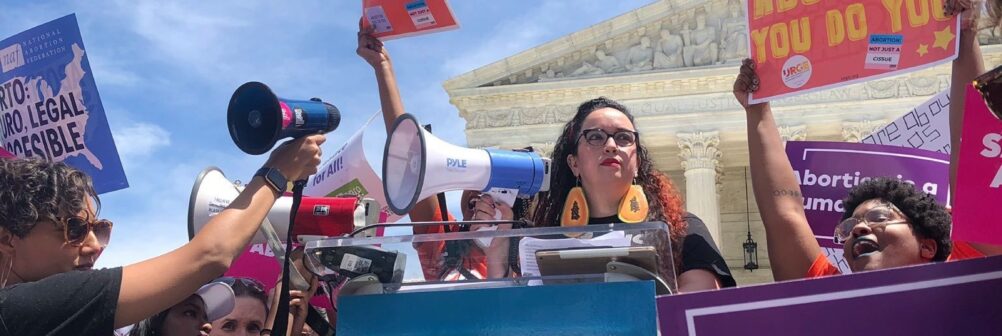Supreme Court Upholds Religious Exemptions for Birth Control Coverage
Rachel Waters
rwaters@urge.org
706-831-1667
(Washington, DC) — Statement by Kimberly Inez McGuire, Executive Director of URGE: Unite for Reproductive & Gender Equity in response to the Supreme Court of the U.S. ruling in Little Sisters of the Poor v. Pennsylvania.
“We are deeply disappointed by today’s Supreme Court ruling that employers with religious objections to birth control can legally deny birth control coverage for their employees. This decision represents yet another blow to low-income young people, people of color, undocumented people, people with disabilities, as well as trans and nonbinary people at a time when access to reproductive services, including abortion care, are under attack by anti-choice zealots.”
“As COVID-19 strains health care systems in states that offered limited reproductive care before the pandemic and as the Hyde Amendment that cuts off abortion access for low-income people and people of color remains stubbornly in place, the Court’s ruling to push birth control access further out of reach is unthinkable.”
“In a truly just society, one person’s religious freedom should not trample another’s right to basic, essential health care like birth control. Religious exemptions for birth control coverage are nothing more than a way to cloak classist, white supremacist, and misogynist discrimination against poor folks, people of color, and women. No employer should be able to intrude upon personal medical decisions or limit access to essential health care. Period.”
###
URGE envisions a liberated world where we can live with justice, love freely, express our gender and sexuality, and define and create families of our choosing. To achieve our vision of liberation, URGE builds power and sustains a young people’s movement for reproductive justice by centering the leadership of young people of color who are women, queer, trans, nonbinary, and people of low-income. As a state-driven national organization, URGE organizes our communities, provides a political home for young people, advocates for meaningful policy change, and shifts culture, working in states where the challenges and opportunities are greatest.

